Watford earned a promotion to the Premier League for the 2021/22 season, but the team are barely staying above the relegation zone, after losing each of their last four games. The manager, Claudio Ranieri, was appointed in October after an unsuccessful start to the season under the previous manager, Xisco Muñoz, but he still cannot find the winning formula and bring some life into the squad. The team have the second-worst defence in the league, having conceded 31 goals in 16 games, and they’re struggling to avoid errors that lead to the opposition scoring. Their defensive vulnerability takes a toll on their performance and despite their attacking efforts, they are frequently in a losing position.
When it comes to the attacking actions, the team are in the top half of the table in terms of efficiency. Watford have scored 21 goals, as many as Arsenal who are currently sixth. One of the reasons for their successful performance is their bargain striker Emmanuel Dennis. The 24-year-old Nigerian arrived at Vicarage Road after his relationship with Club Brugge fell off and he was no longer part of their plans.
Despite the discipline problems, the Hornets decided to strengthen their forward line and invest €4.00m in him and this is a decision that’s been repaid multiple times, as the attacker might be the one to keep them in the Premier League.
Being both a direct and indirect threat has helped the team in many situations and he has currently contributed seven goals and five assists since the start of the campaign. Apart from strong finishing, Dennis has many more qualities that are beneficial for the team in possession.
In this scout report, we will use tactical analysis to explain what his impact is and how he fits Ranieri’s tactics.
Watford’s attacking movement
Since his arrival, the manager has switched between a few formations but so far has favoured the 4-1-4-1. The attack is most frequently led by Joshua King, while Ismaïla Sarr, Tom Cleverley, Juraj Kucka and Dennis would be the supporting system behind.
The team prefer playing with width and usually attack through the flanks, trying to stretch out defences with a lot of movement. The team stay relatively deep and try to keep their compactness, often in an effort to be efficient on the counter.
While they have been most successful from open play, scoring when methodically building up from the back, the team have also shown some set-piece abilities, scoring four times from these situations.
While Dennis has been the most efficient in front of the goal, he is followed by King and Sarr who have scored five goals each. Their constant movement off the ball and interchangeable positions work perfectly for short pass combinations as they tend to combine with the full-backs and exploit the wide areas.
Dennis’ versatility makes them even more unpredictable since he has been deployed as a left-winger, right-winger and centre forward too. That provides more options in attack and allows in-game tactical changes, as he can quickly change his role.
They frequently rely on crossing to expose the opposition due to their tendency of using wide areas. With 14.67 crosses per 90 and a rather high accuracy, the team often manage to shoot from these situations. Ranieri’s side try to overload the opposition half and have multiple options upfront so their crossing attempts and link-up-play are successful.
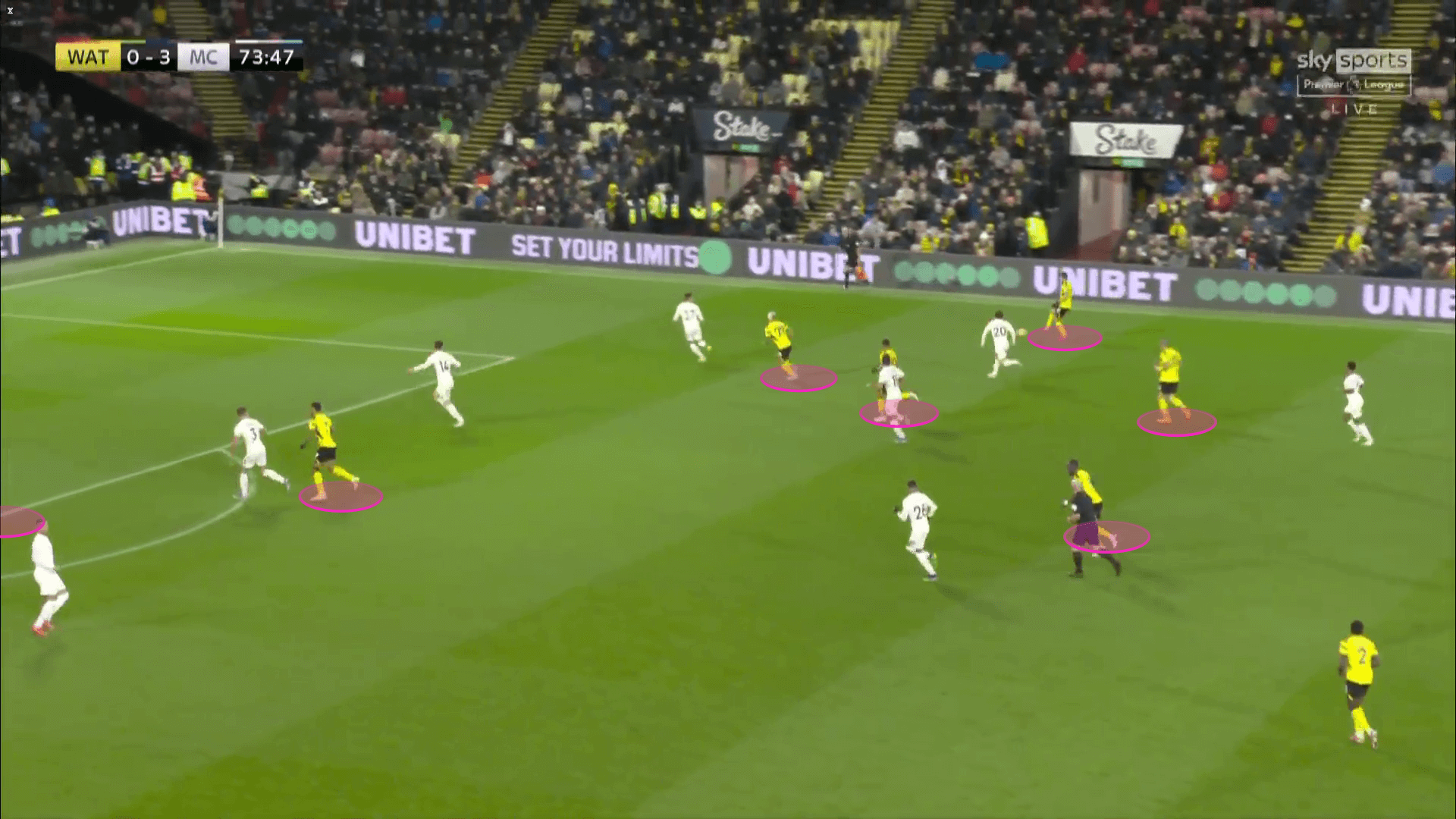
The Hornets’ pressing strategy also helps them a lot in being efficient in attack. They constantly try to recover the ball all over the pitch, and this often results in catching their opponents off guard and being able to shoot. Additionally, the players’ decision-making and control often result in them scoring from difficult angles.
The 24-year-old as a direct threat
Dennis fits into the above strategy perfectly and is often a key figure in the final third. The Nigerian is very active and very direct in his actions.
His composure allows him to score from different opportunities and angles, which makes his presence in attack irreplaceable. He doesn’t hesitate to take on defenders and shoot from a close distance and difficult areas but his positional sense usually makes it easier for him and he finds moves into quality positions to shoot. Creating chances with his strong right foot results in 53.6% of his shots being on target, which places him sixth in the league in terms of shot accuracy, while his teammate Sarr is first with 58.33%.
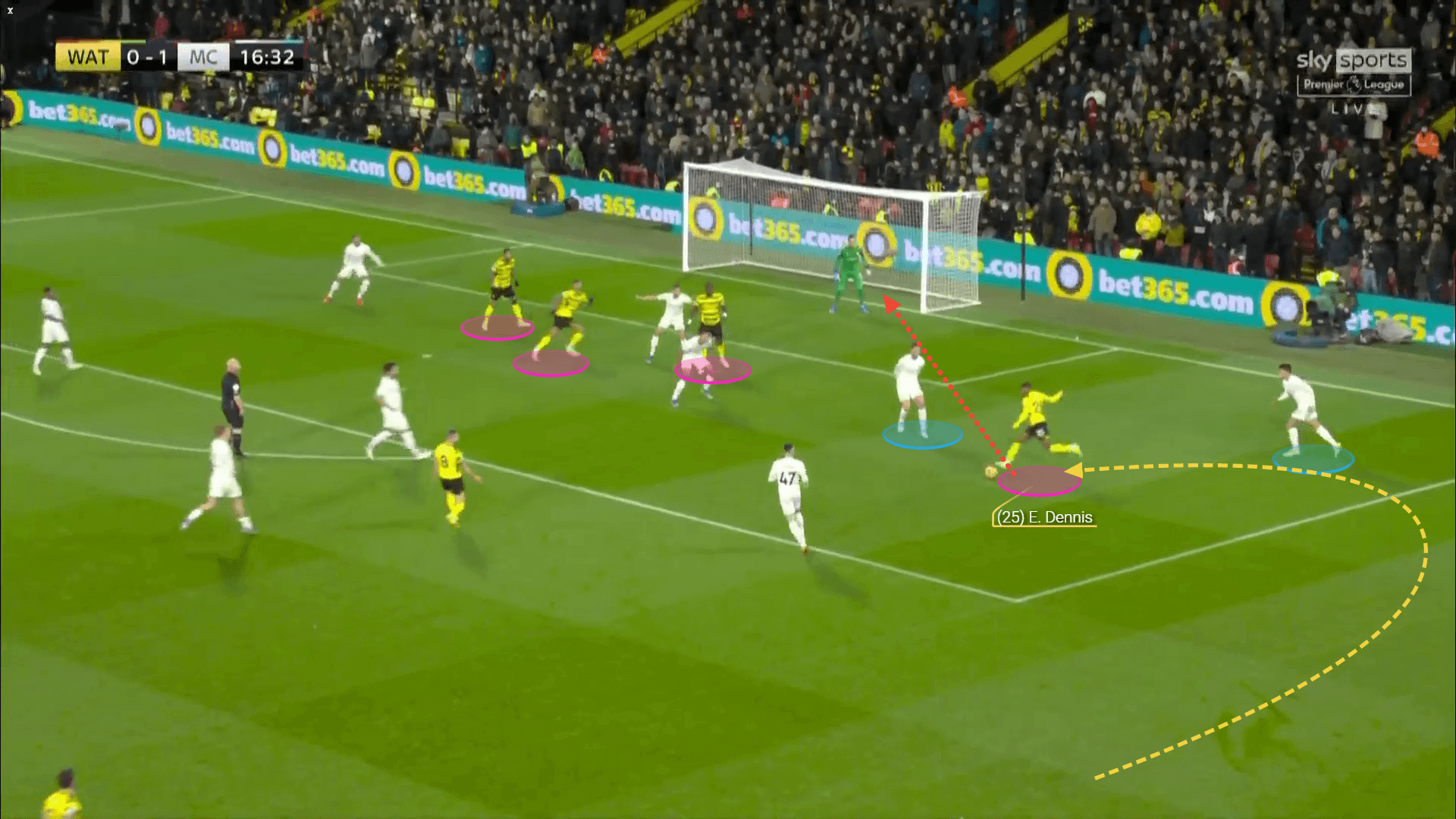
His successful shooting is tightly connected with his spatial awareness and movement off the ball as he finds gaps and quickly exploits them, being a constant direct threat to the goal. His runs to the box dismiss the opposing defences and allow him to get onto the end of crosses and through balls to score.
He reads the game well and knows how to time his runs or when to drop deeper to pick up the ball and use his pace to break through defences. He is always well-informed of his teammates’ and the opposing players’ positioning thanks to his high awareness, which results in finding better areas to shoot from.
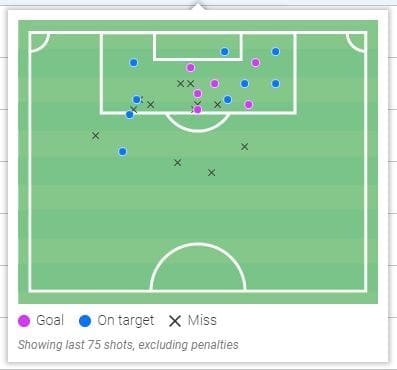
He doesn’t hesitate to exploit preoccupied spaces too as his control and confidence on the ball allow him to hold on to the ball by dribbling past his opponents. His movement gets him on the blindside of defenders which makes him a threat in attacking set-pieces too. Although he occasionally shoots from distance, he prefers strolling inside the box and exposing Watford’s opponents from close range. He contributes with heading attempts too and despite his height of 1.74 his presence in the box often disturbs the opposing players. With his 4.67 aerial duels, he wins the team second balls that they can take advantage of.
His pace makes him a great threat on a counter too as he can equally well carry the ball to the final third on his own or run off it so he can move into a goalscoring position and finish.
Dennis as a support system in ball progression and in the final third
Dennis doesn’t limit his movement to one area and as his heatmap indicates, he provides passing options to his teammates centrally, in the wide areas and in the half-spaces as well. This means the team are able to attack through different channels, using crossing, through balls and link-up-play.
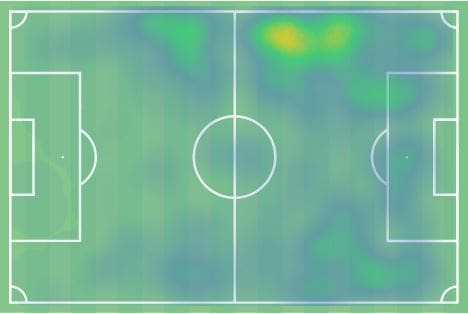
The attacker frequently drops deeper to pick up the ball and support ball progression or simply to drag defenders out of position freeing up spaces for his teammates to run into. With his movement, he breaks through the oppositions’ pressing structures and helps the team in delivering the ball to the advanced areas through short pass combinations and link-up-play.
His runs on and off the ball are crucial for Watford’s counter-attacking actions since he can equally well deliver the ball to the advanced areas with his 1.94 progressive runs per 90 but also use his pace to draw the team forward and provide the needed finishing. Their opponents are well aware of the threat he poses and he could also take advantage of that by running from deep and dragging his markers, letting the rest of the team do the job in front of the goal.
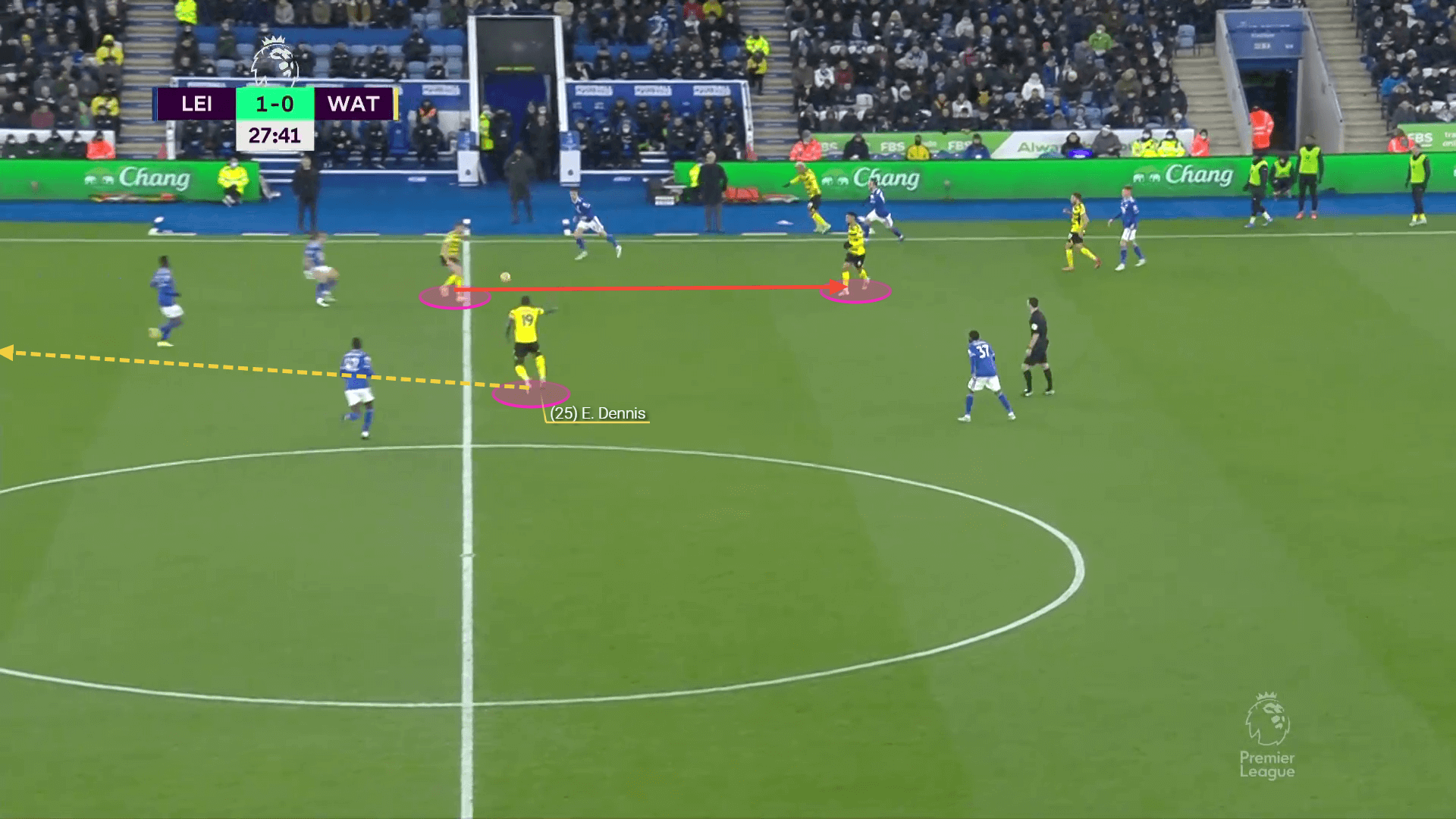
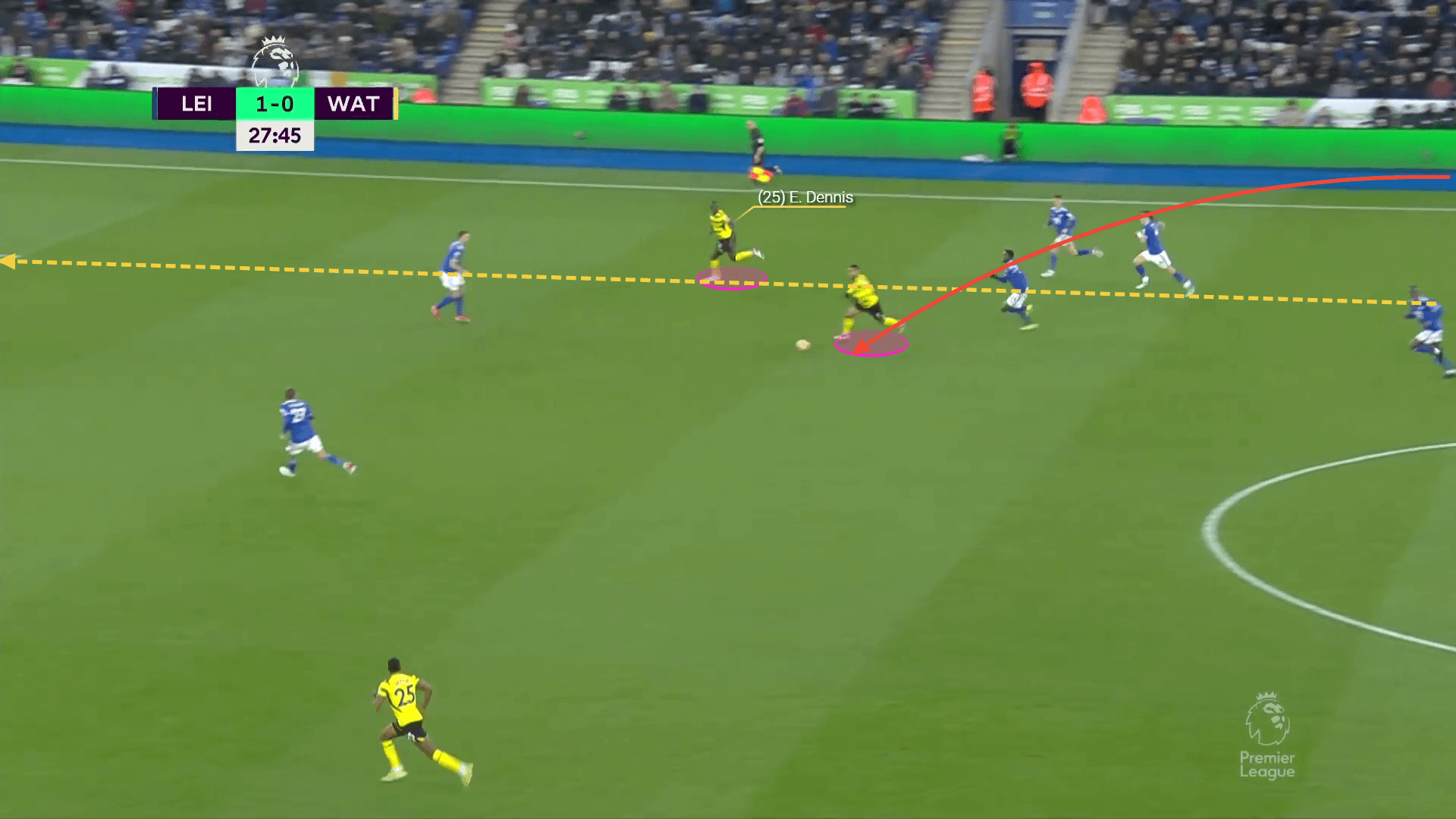
He often rotates positions with his teammates in attack, which stretches defences and allows them to open spaces and exploit them. His agility helps him in exposing such spaces on his own after luring his opponents in the desired directions. His 5.85 dribbling attempts on average per game help him to take on his markers successfully.
Not only does Dennis exploit these spaces with his movement, but he does so with his passes too. His attacking flair and spatial awareness make him valuable in creating chances for his teammates with through balls. He has assisted five goals so far this season as a result of crosses, through balls and smart passes.
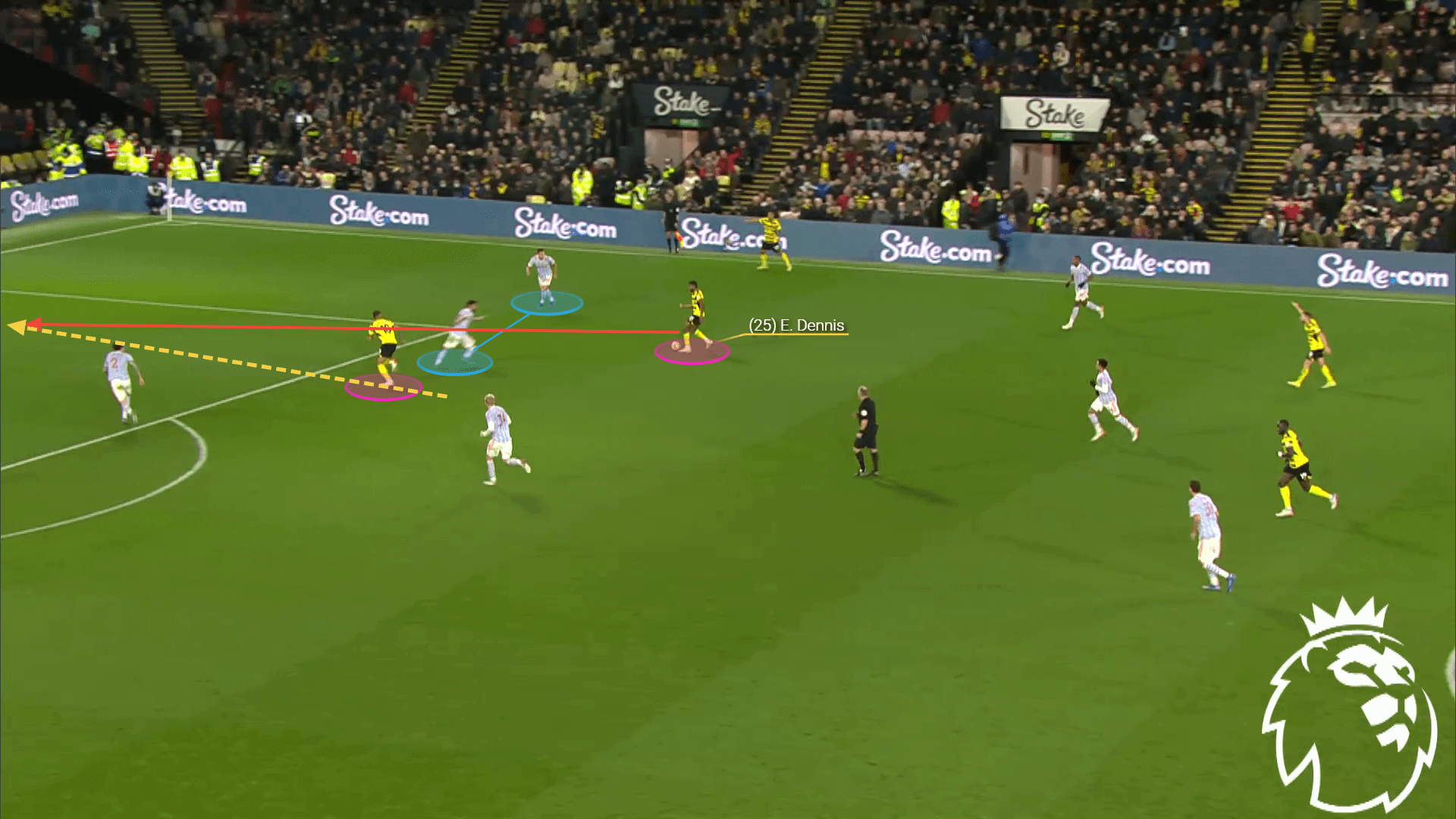
Dennis in defence
Dennis’ contribution is not limited to his attacking actions. He is very actively involved in the team’s pressing actions and tries to block the opposition’s build-up from the back, constantly looking to challenge them and win the ball back. His ball recovery abilities are strong and he gains back possession 3.03 times per 90 which provides more defensive security but also additional attacking options.
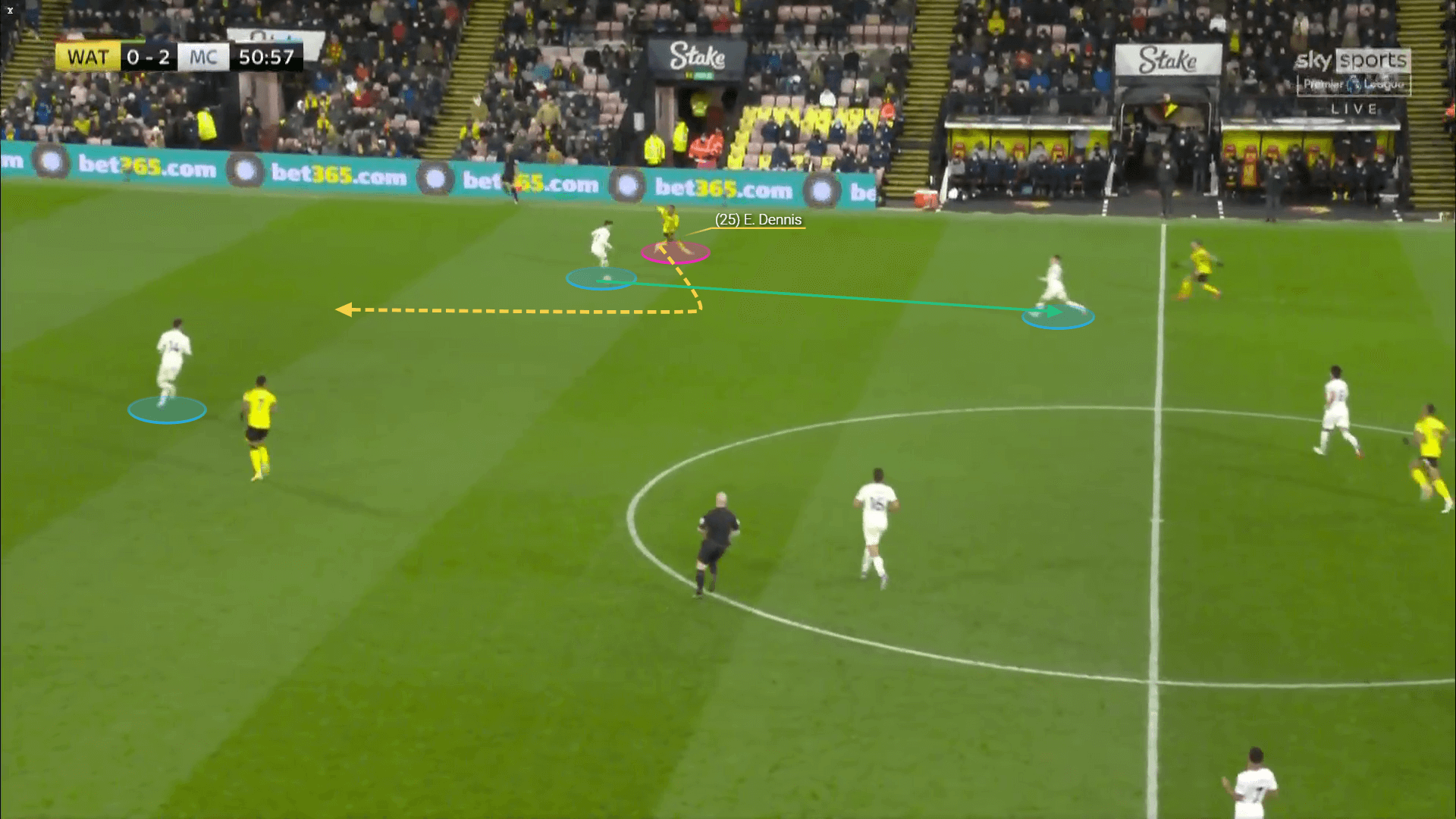
He wins half of his 8.32 defensive duels per 90, which often is a result of his dribbling and control. Whenever he needs to defend the ball, he is well balanced and uses his technique to hold onto it. His work under pressure is a valuable asset in dangerous situations.
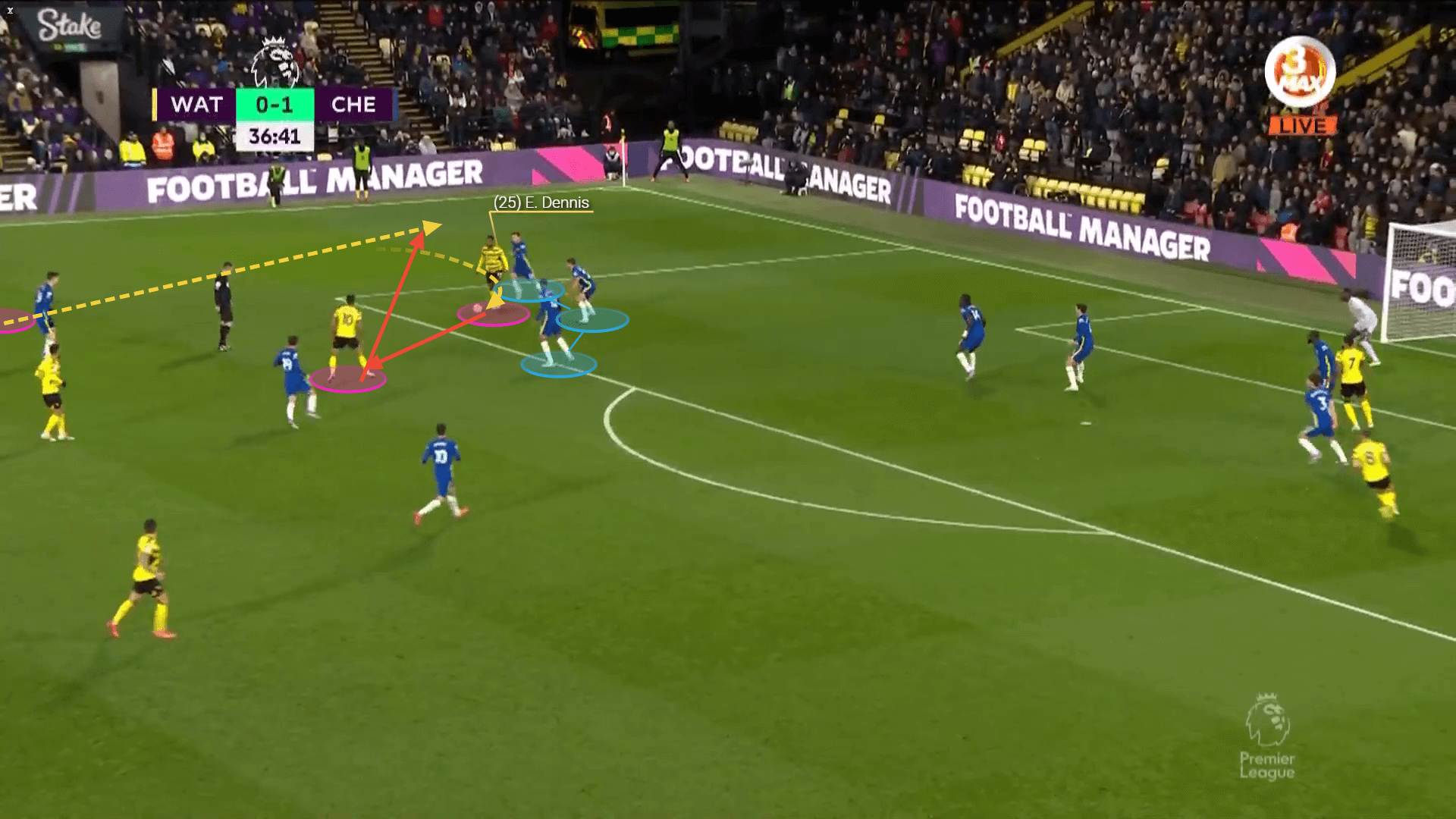
Conclusion
As our analysis showed, Emmanuel Dennis looks experienced beyond his years and hasn’t taken his time with Watford for granted. His complex skillset and his positional versatility make him very reliable in attack as he provides both a direct and indirect threat, increasing the team’s chances for scoring.
His connection with his teammates and his measured movement both in ball progression and in the final third, provide many options in attack and make him that efficient in front of the goal. With these impressive displays, there is no wonder why teams like Arsenal and Manchester United had an interest in him a season ago. Should he be consistent in his performance and should the team improve defensively, the Hornets might be able to avoid relegation.

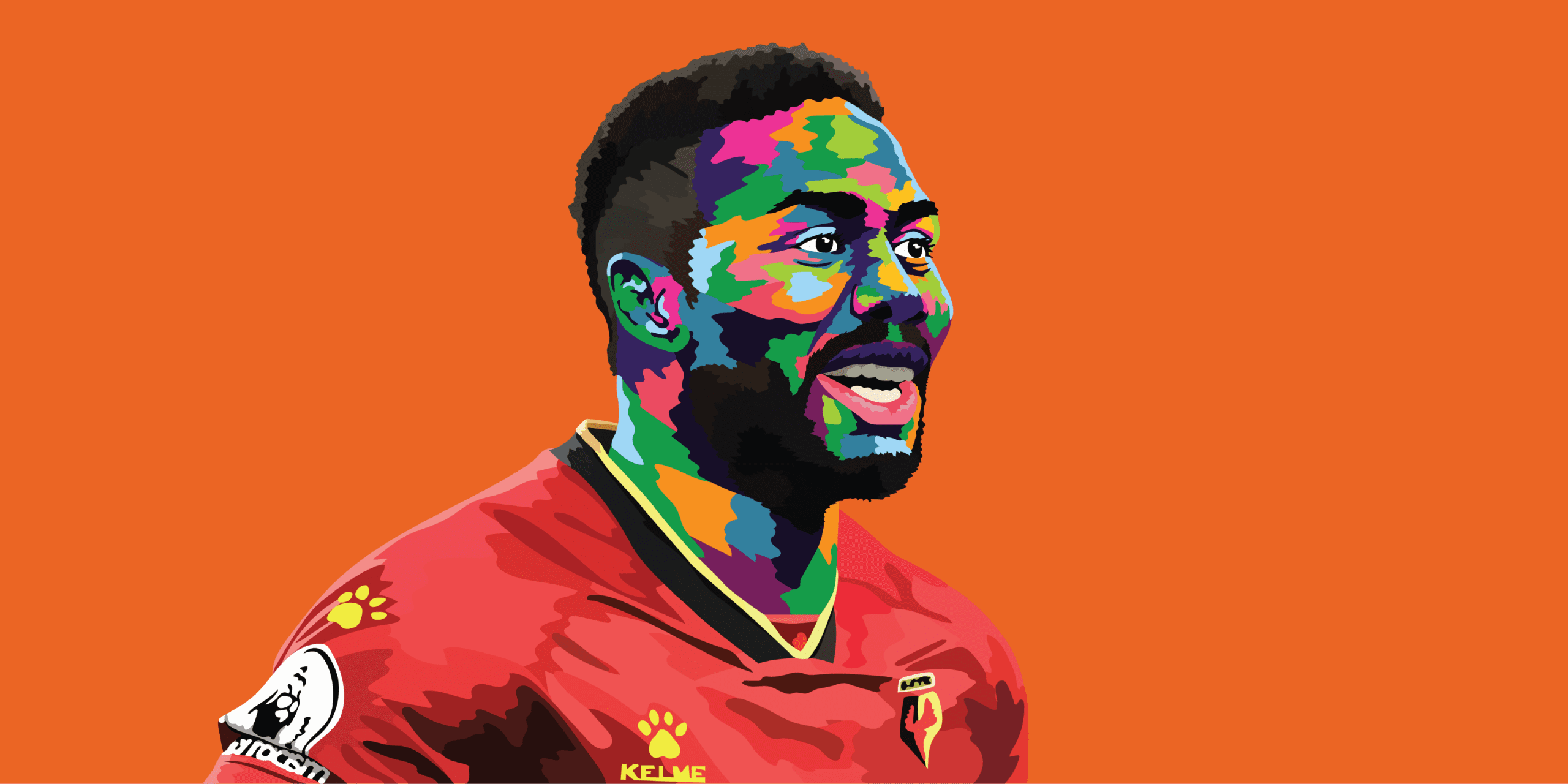




Comments